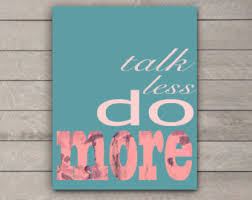When music’s natural soft-to-loud dynamics are squashed flat music sounds louder, but is louder better?
Dynamic range compression (DRC) or simply compression reduces the volume of loud sounds or amplifies quiet sounds by narrowing or “compressing” an audio signal’s dynamic range. Compression is commonly used in sound recording and reproduction and broadcasting and on instrument amplifiers.
Dynamic range compression isn’t new, it’s been used by recording, mixing, and mastering engineers for many decades. A little bit of compression is fine, but over-compression can sound downright ugly. Most of today’s music, whether it’s on LP, CD, the radio or iTunes is over-compressed. Most remastered CDs are over-compressed.
Before we go any further, I’m not referring to the lossy compression used in MP3s, or lossless compression used in Apple Lossless. They’ve got their own set of problems, but dynamic range compression is a very different predicament.
To the casual listener compression can sound “good,” mostly because it makes the music seem louder and punchier, and once music’s natural soft-loud dynamic shifts are squashed flat music is easier to hear in noisy environments like cars or over iPods. Compression reduces the need to adjust playback volume–because it’s always nearly the same volume–loud.
Engineers worry that if they don’t compress their recordings the music would seem too soft and low. That is, if a music listener went from really loud, compressed music to quieter, uncompressed music they probably wouldn’t like uncompressed music–unless they turned it up! That way they would hear the music’s natural soft-loud dynamics.
Unfortunately, that’s not an acceptable scenario to most engineers or record labels. They’re addicted to over-compression, it’s a hard habit to break.
But the unnatural onslaught of compressed sound obliterates musical nuance, delicacy and emotional power. Compression’s loud-all-the-time nature sucks the life out of music.
DRC has been around for a long time, and while the practice is as bad as it has ever been, the past few years have seen the beginnings of a backlash by those who notice how bad the music sounds from artists they love.
What are your thoughts? Do you care about compression? Would you be interested in better-recorded music from your favorite artists? With digital distribution the norm, it wouldn’t be overly difficult to offer a lesser-compressed version of tracks for fans in the know. Forget high-resolution audio, better-mastered audio might be a nice first step. Who knows, maybe this is one of the reasons why there has been a resurgence of vinyl.
Click here for government certification in Media





14 Comments. Leave new
Well written
Nicely written. Compressing music, if makes the original track better is sound, then is appreciated.
Informative article
I think it all comes down to money. After all music industry is also a business. If people think compression of music will make more money, then they will do it.
Nice article. A unique topic. Loved reading it.
Nice article
good effort!
This is so true. Very well written 🙂
informative
Good one 😀
indeed a very interesting topic, very well written, keep going
unique as well as a very interesting topic!
Great work!
Worth reading